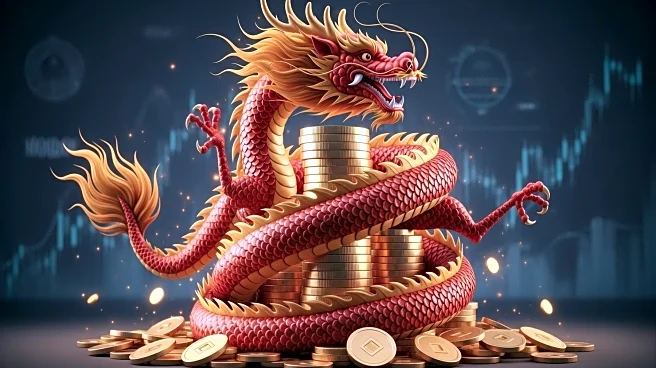What's Happening?
China's economic slowdown is intensifying, with recent data showing declines in retail sales, industrial production, and investment levels. The real estate downturn is worsening, adding to concerns about the country's economic prospects. Despite solid data earlier in the year, the current figures suggest that Beijing may need to implement further stimulus measures to achieve its 5% annual growth target. The situation reflects broader challenges, including a heavy debt burden, high youth unemployment, and deflationary pressures.
Why It's Important?
China's economic slowdown has significant implications for global markets and trade relations. As the world's second-largest economy, China's performance affects international economic stability and growth prospects. The downturn may impact U.S. industries reliant on Chinese imports and exports, influencing trade policies and economic strategies. The need for stimulus measures highlights the challenges of managing economic growth amid structural issues and external pressures.
What's Next?
China's government may need to implement additional economic policies to stimulate growth and address underlying challenges. The situation could lead to shifts in global trade dynamics and affect international economic relations. U.S. stakeholders may need to adapt to changing market conditions and explore new opportunities for trade and investment.









